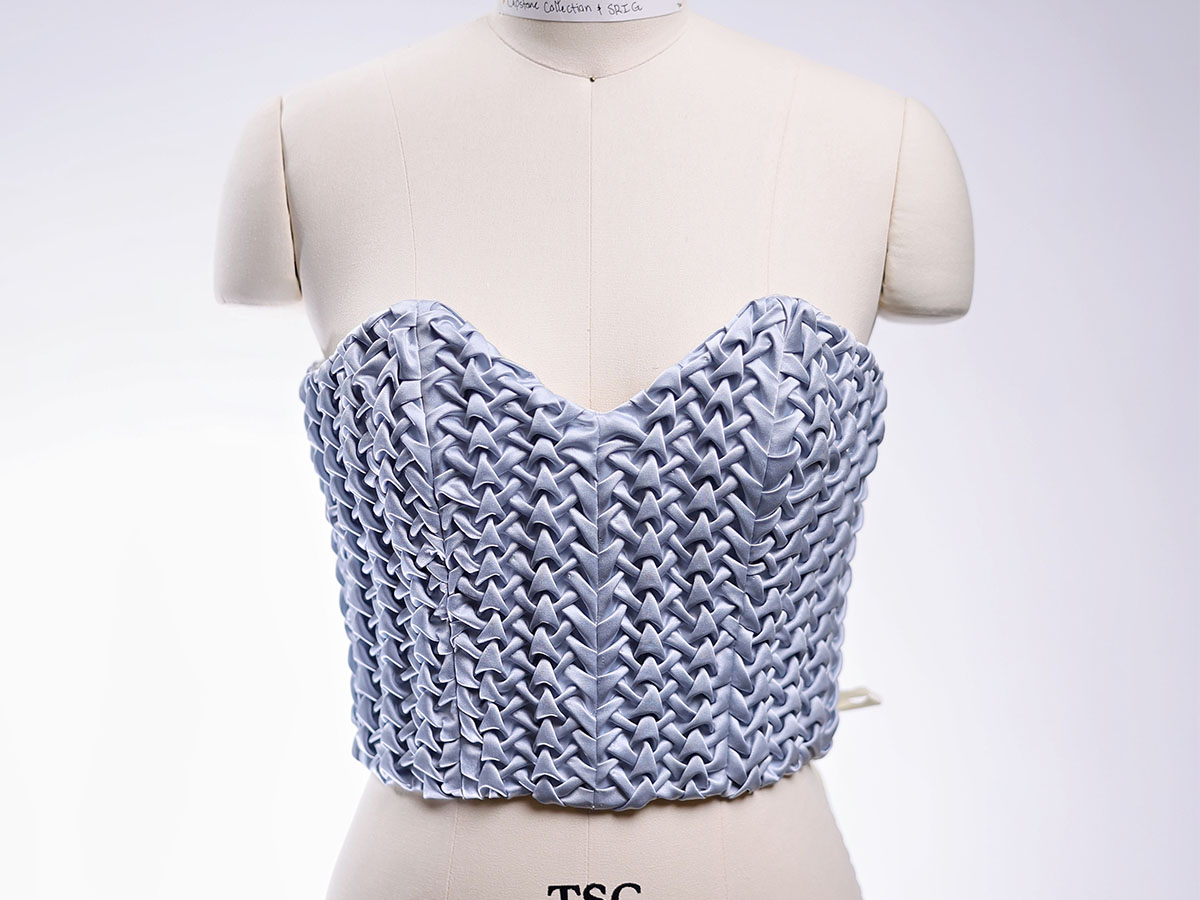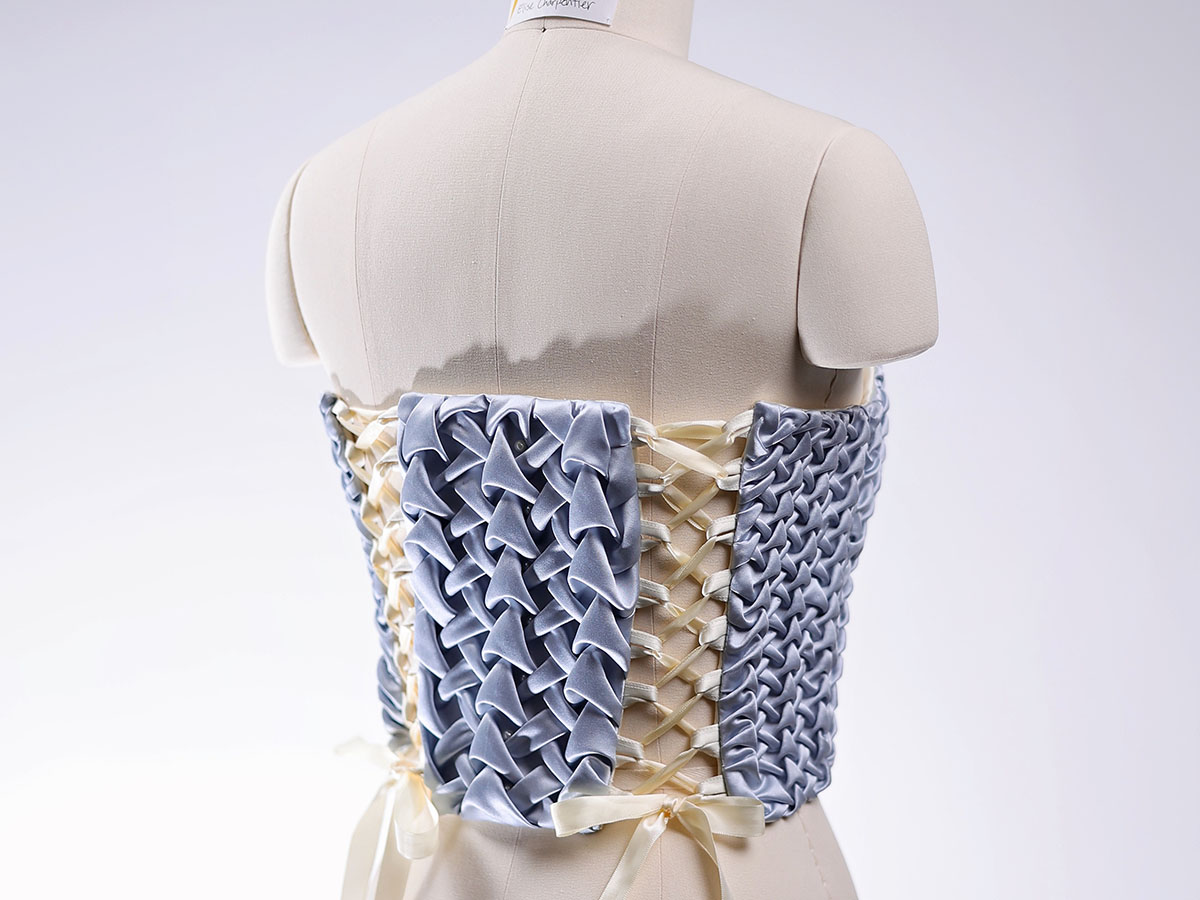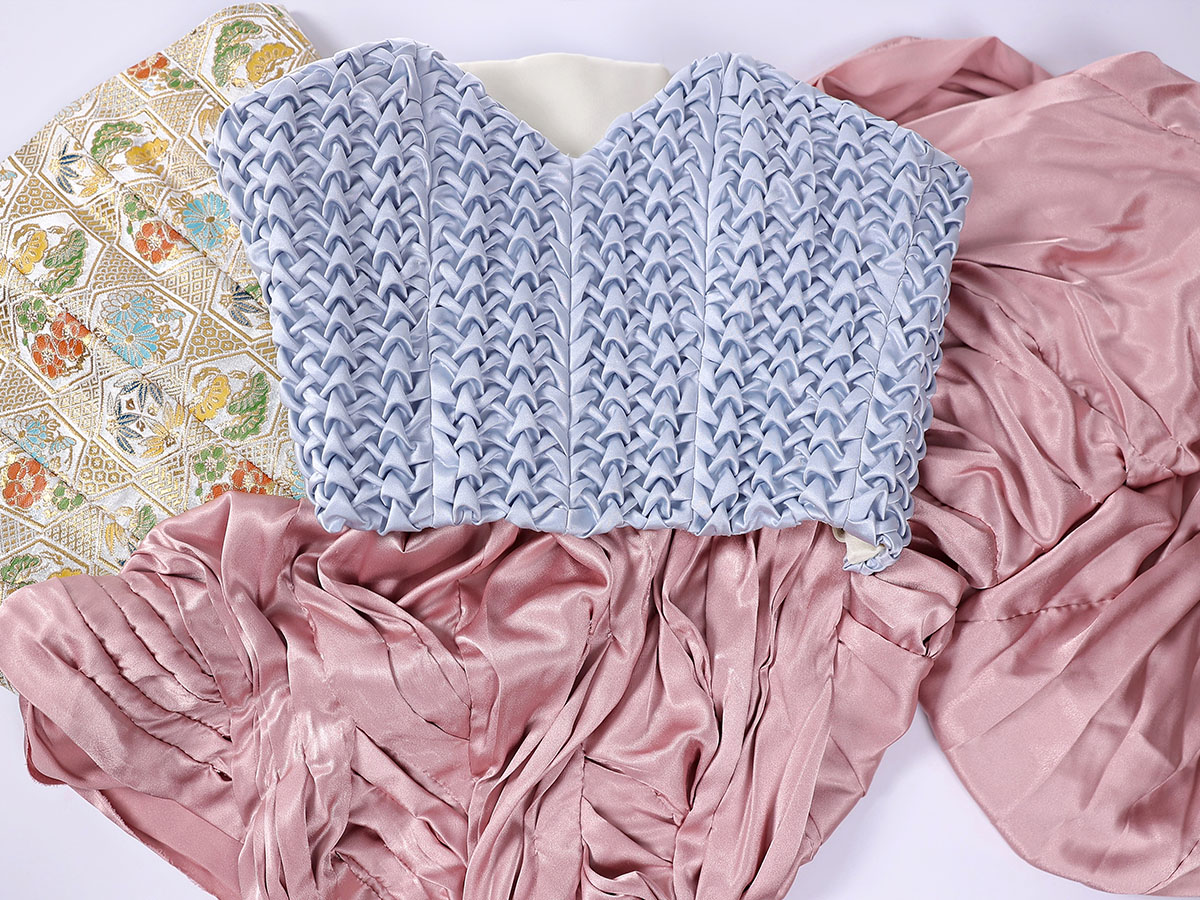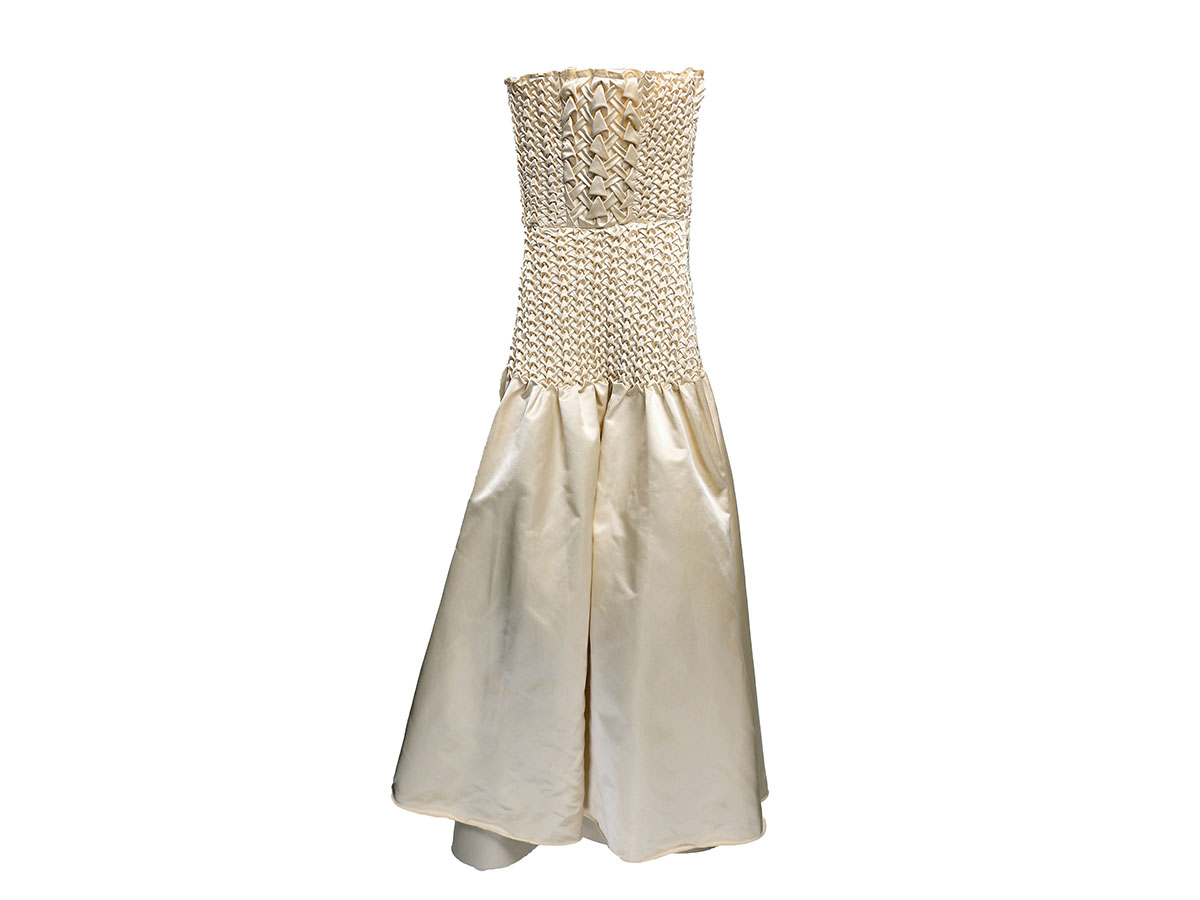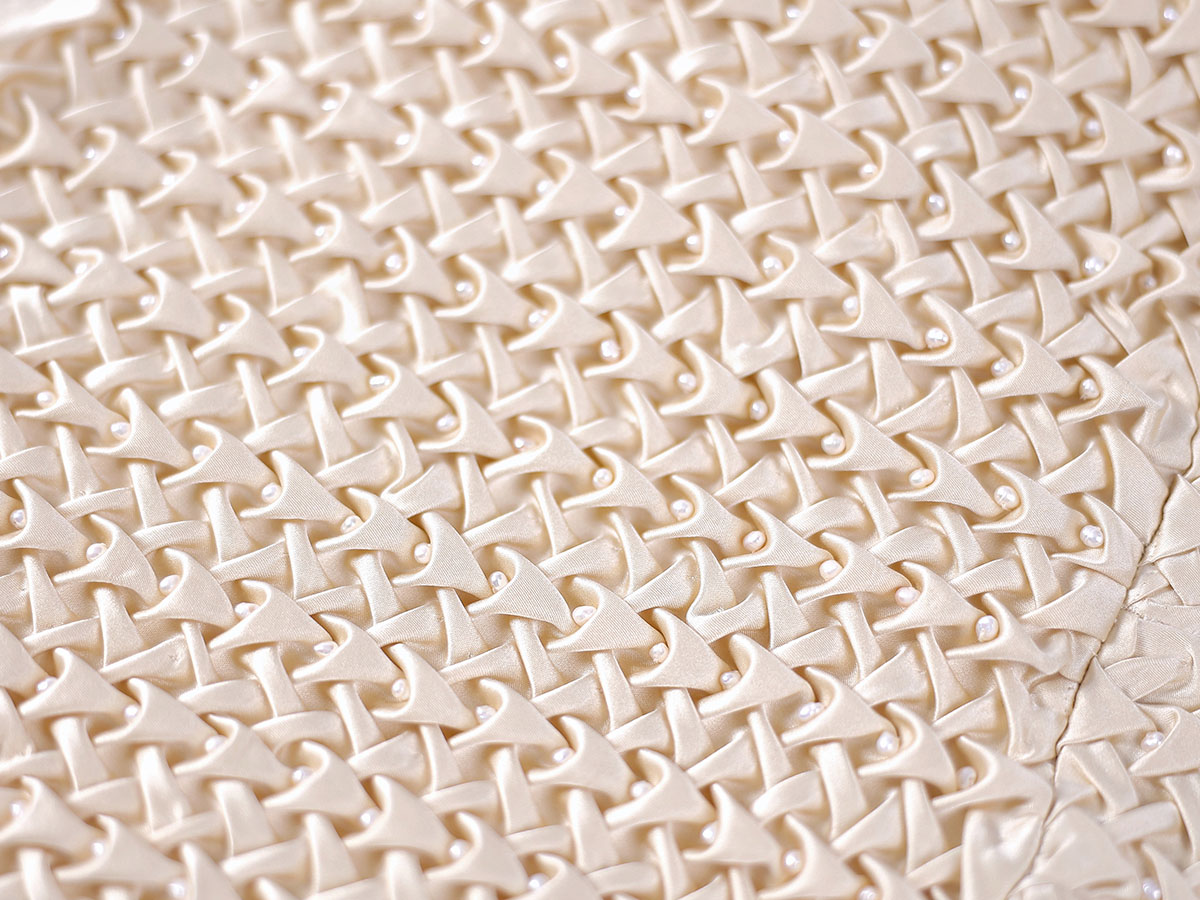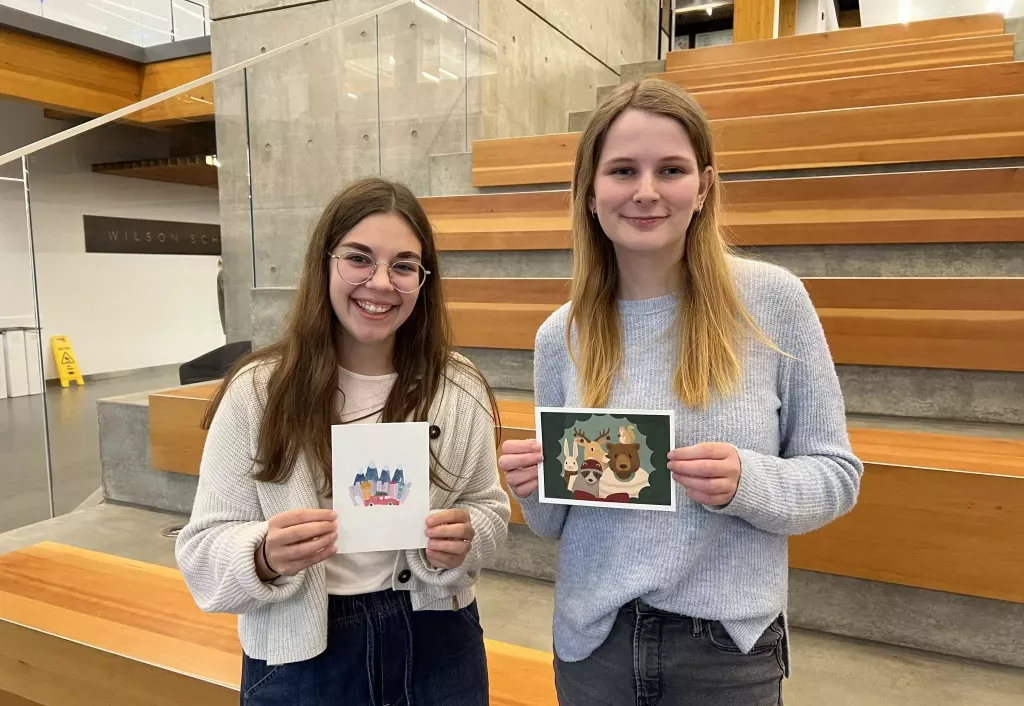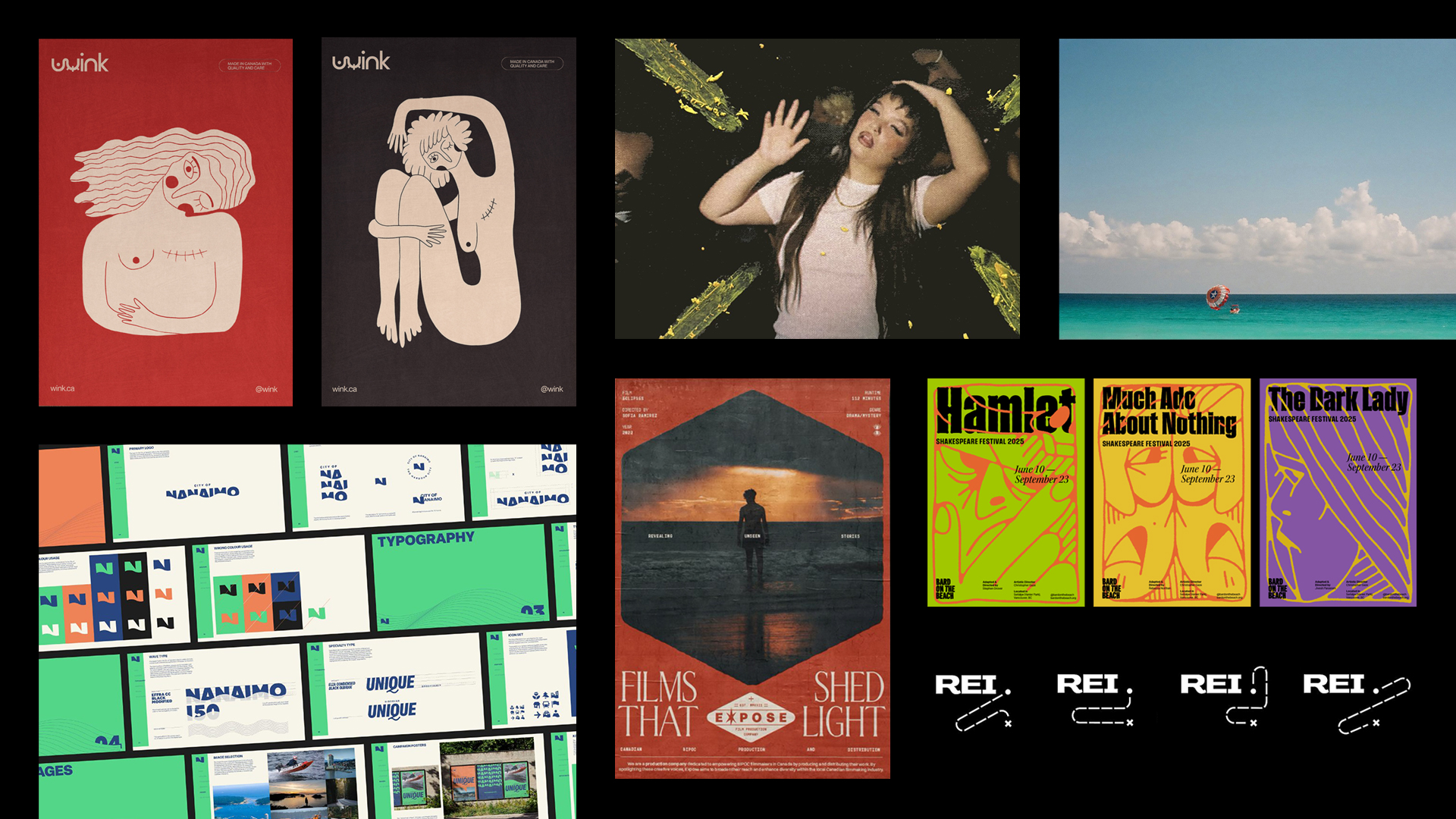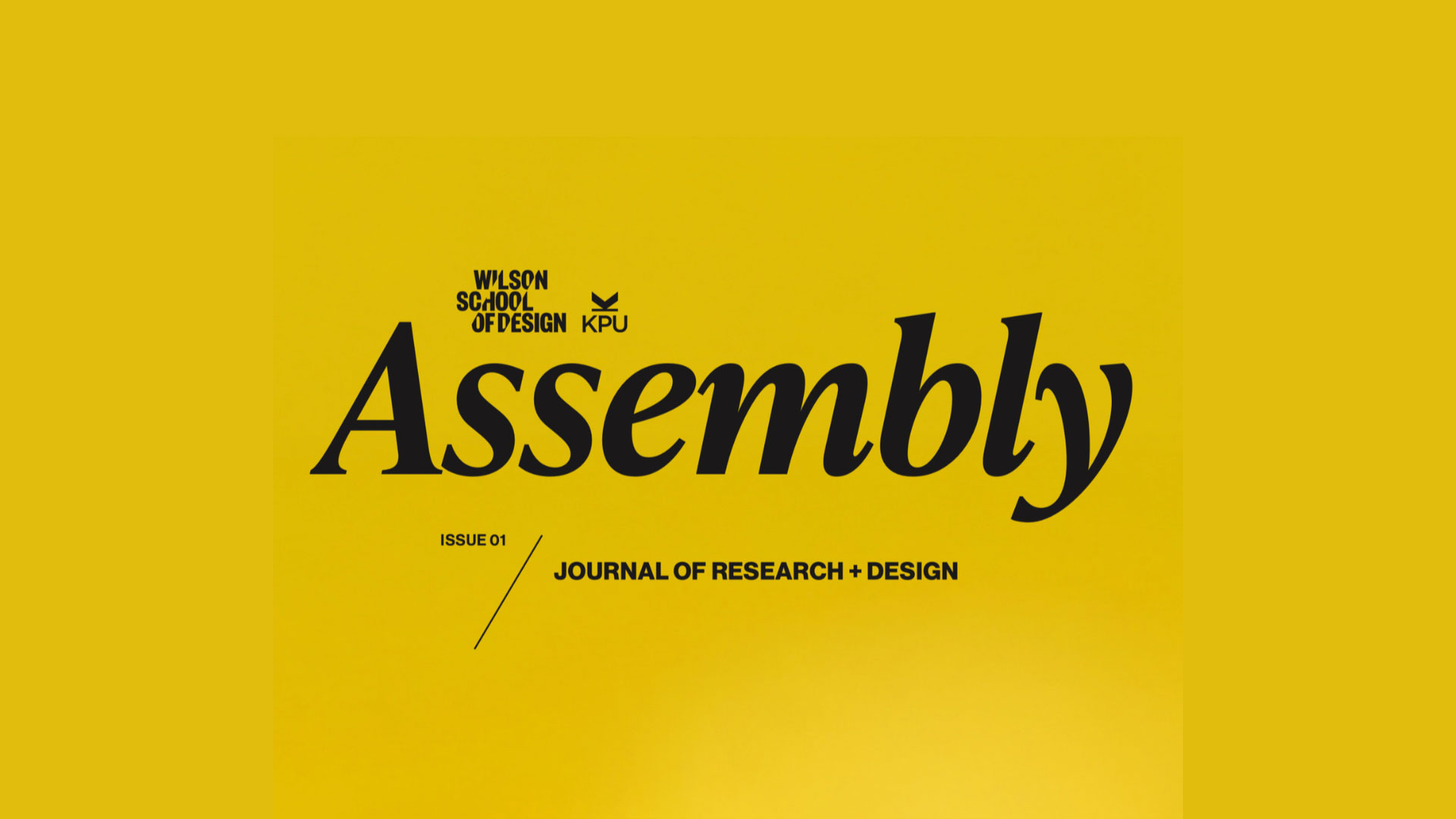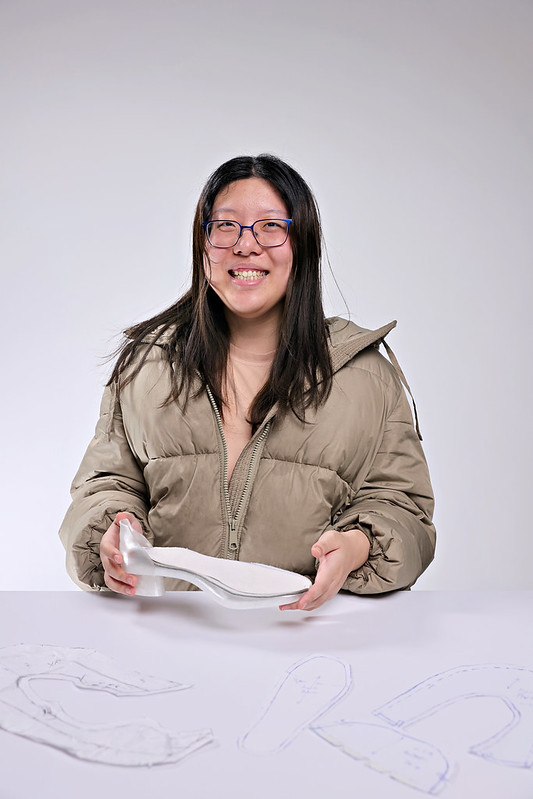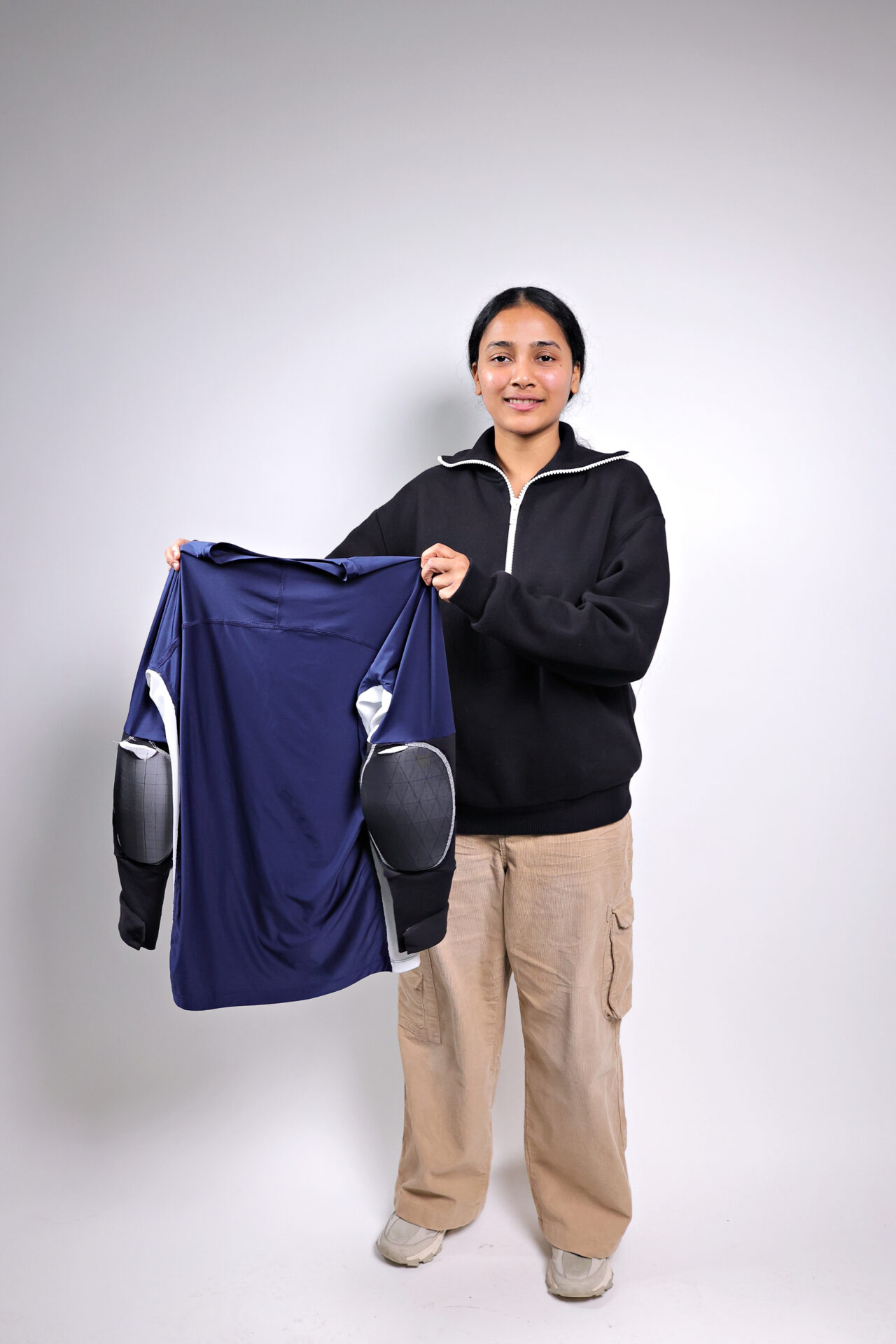Fashion student Elise Charpentier addresses the following question in her research project:
How can zero waste design processes be integrated into the design and production practices of the bridal wear industry to achieve sustainable innovation?
The average amount of fabric wasted when garments are produced is 15 percent with an annual 12.36 million tons of pre-consumer textile waste from off-cuts in production. Within the bridal industry, zero waste practices are currently not visible or fully integrated to the same extent of capabilities accessible in numerous apparel markets. Through zero waste design, I address the inefficiency in fabric use by reframing fabric waste as an opportunity to experiment and innovate with production processes. Developing innovative zero waste processes ensures sustainable innovation and production by reducing material waste in design practices and eliminating textile waste in production processes.
The project redefines artistry, blending traditional craftsmanship with modern aesthetics, while utilizing zero waste sustainable practices. The collection fills the stagnant gap in the petite market for a diverse avant-garde collection of sustainable and customizable products. The collection utilizes fabric manipulation and zero waste patterning to reduce fabric waste while also being designed with the petite consumer in perspective, designing for a petite bride’s proportions. The development of zero waste methods through integrating physical and digital tools, fabric manipulation and modularity allows for innovation to assist sustainable developments by analyzing and addressing the inefficiency of textile waste in the bridal wear industry.

The collection represents a significant industry shift in demand for environment conscious products, requiring the industry to adapt to sustainable production and consumption practices. Within a short time, I firsthand experienced many shift their perspective. I hope the collection inspires many to assist the development of a creative spaces willing to adopt zero waste design practices and sustainable production. I believe many will be inspired by the collection and will allow for the viewer to move towards the first step to innovate through this method of design, which I believe is maintaining a space to creatively think differently and innovate sustainably.
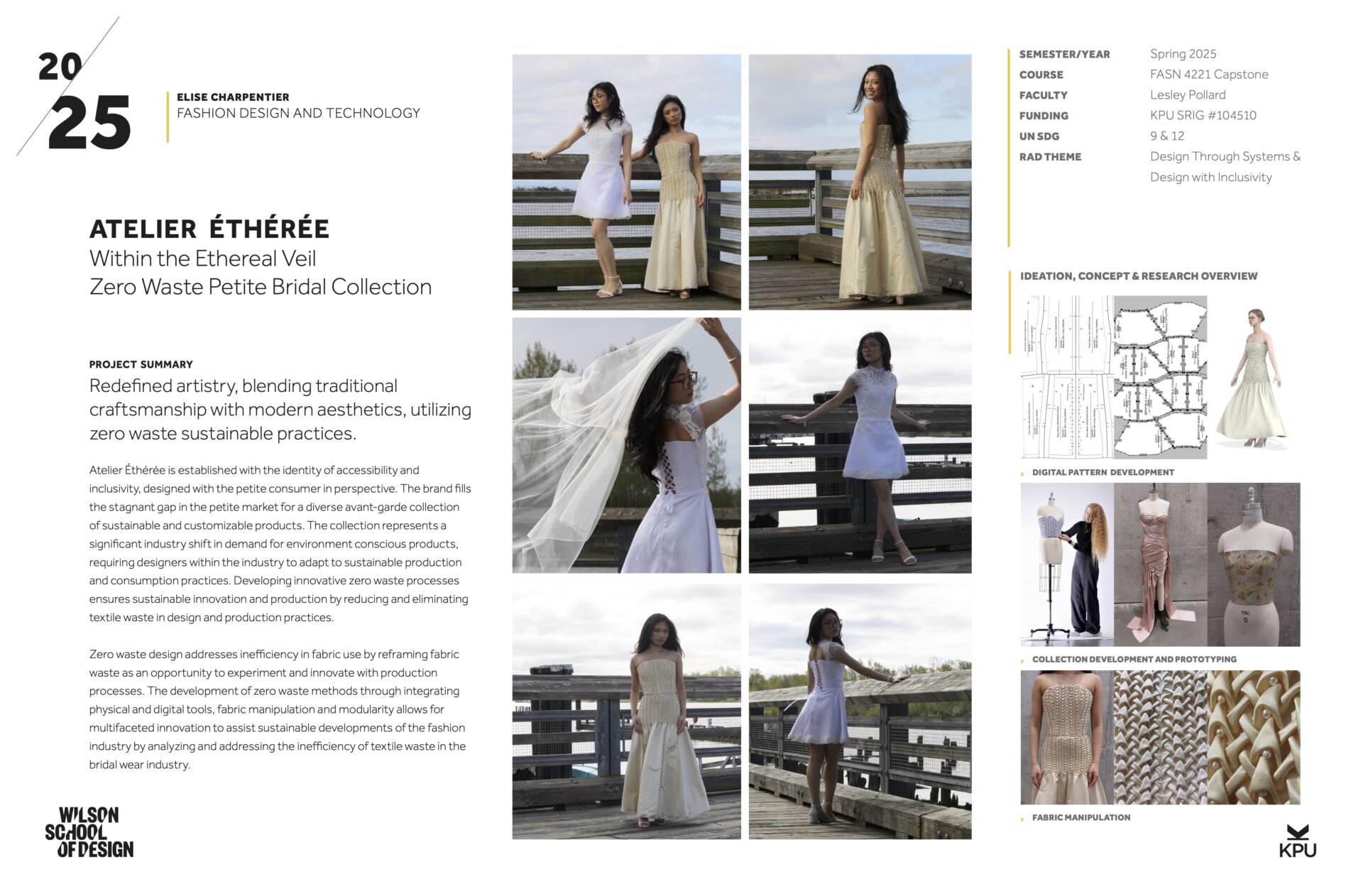
Research at the KPU Wilson School of Design creates evidence-led solutions. We work with companies, organizations and institutions in a collaborative process to design and deliver solutions for complex and evolving challenges.
Supervisor: Lesley Pollard
UN Goals: 9, 12
Program: Fashion and Technology

